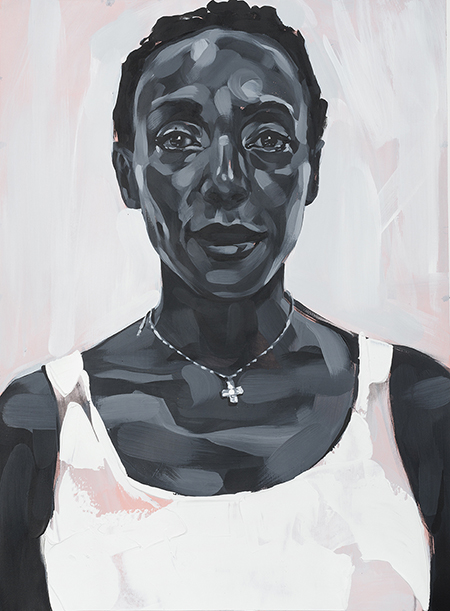
Continuing through February 13, 2016
Pull aside the blackout curtain and enter a darkened realm of theatre and deepest space. In Michael C. McMillen’s latest exhibit “Outpost” the simple act of entry launches a cosmic voyage into time, space and fading collective memory. One that bounces weightlessly between history, make believe and all the other stories we tell ourselves about what human life amounts to.
There are nine key pieces made between 1980 and this year that comprise this journey and, in typical McMillen style, they are all meticulously modeled from disparate found objects and materials that wear their age, or appear to, like residue from a life hard fought. In the heart of this spatial battlefield sits “Dr. Crump’s Mobile Field Lab”, an aging metal trailer that holds a trove of research artifacts, interrupted experiments and one of the artist’s cobbled together movies. As we enter and explore we weave narratives about the vanished presence who once inhabited the lab until we exit to confront again the vastness of time and the emptiness of deep space.
Spotlighted in the darkness of McMillen’s metaphoric cosmos is a small, free-floating wood and metal “Transmitter” tower. So small it looks distant, it drifts rootless and curiously askew. Its supports are untethered, its sides are dilapidated and its pulsing red light flares and dies atop the antenna like a tiny remote beacon of lost communication calling perpetually into the dark.
Also moving with us is a large suspended model of a double-masted sailing ship. “The Pequod II” is a haunting vessel with actively billowing sails. It’s an improbable cross between the fictitious 19th-century Nantucket whaling ship of Melville’s 1851 novel Moby Dick and a deep space aircraft carrier, complete with bright running lights. Like all the other works in “Outpost” the starship is constructed from cast-offs, junk and carefully fabricated simulations that awe us for their intricacy. But more arresting is the way they accumulate when gathered together to create an unspecific but nostalgic narrative about human life as a tiny process of invested time and action in a vast, ongoing universe.
Rebecca Campbell’s latest paintings on paper for this show’s “You Are Here” series are all portraits of women artists she knows. Painted in greys and black over a bright pink ground, Campbell gives us tightly framed images of women that in gaze and paint don’t bother with seduction. Instead they look us straight in the eye while her assured, to-the-point brushwork lays down their personalities in fluid shapes of monochrome color. As studies of calm self-possession and presence they make for a bold yet still intimate engagement with subliminal expectations about how true female beauty can be represented.
Campbell’s paint handling in these portraits mirrors the sharp psychological force of the subject’s personality. Each woman is painted in such a boldly restricted palette and with such an arresting directness of mark that almost everything traditionally alluring is stripped away. We see only their completely clothed bodies from the chest up. Their faces are graphic and almost sculptural, seeming to coalesce out of shaped liquid planes of compounded greys. Bodies and hair are often made with gestures so quick and spare that flashes of bright pink or muted rose sometimes burn through like underlying residual radiation. What we feel from these women is not softness, but power.
In the past Campbell has painted women in lush color and languorous poses, juxtaposing her narratives about the intoxicating power of nuclear explosions with the fleeting awe and beauty inspired by the female body. These portraits go another way. Like the show’s title “You are Here,” the images orient us within an awareness of context. She is asking us to engage with these women, one on one in the powerful psychological territory of the assured creative female subject. With distilled clarity she makes it a compelling place to confront established notions about representation and the power of the feminine.
Published Courtesy of ArtSceneCal ©2016
